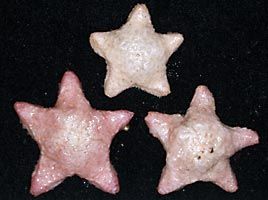 I haven’t written about conservation in while since much of my readership lately expressed more interest in pets but have been working on the editorial calendar for 2009 so that I cover the topics all of my readers will find interesting…and that keep me happy!
I haven’t written about conservation in while since much of my readership lately expressed more interest in pets but have been working on the editorial calendar for 2009 so that I cover the topics all of my readers will find interesting…and that keep me happy!
As a result, I haven’t posted too much about new discoveries of animal species–which is happening with regularity these days.
Just last month one discovery in Tasmania hit the news that was interesting not just because of the diversity and number of species found–but because the research team was pretty high tech in their use of gadgets.
The Commonwealth Scientific and Industrial Research Organisation (CSIRO) is Australia’s national science agency and its Wealth from Oceans team discovered hundreds of new marine species and dozens of undersea mountains during their project in the Commonwealth Marine Reserve Network.
The team conducted surveys of the Tasman Fracture and Huon Commonwealth Marine Reserves found about 100 nautical miles off the coast of southern Tasmania and shot video footage of the environment as well!
Usually all we get to see are the photographs documenting the species but the footage was recorded at pretty good depths during their work off of the the marine research vessel, Southern Surveyor. The CSIRO scientists filmed an amazing 100 hours of underwater footage and took 8000 photos.
The team then analyzed the findings which included an 274 species new to science and 80 undersea mountains which are considered to be very important ocean habits. Scientists also discovered 145 new undersea canyons.
Such research will be a valuable contribution to the Census of Marine Life, a global network of researchers aiming to develop a comprehensive picture of the world’s oceans. The first census report is due to be released in 2010.
One of the videos show a Bathyraja richardsoni skate which is believed to be the only one ever seen alive in the world and you can watch several videos including the one with the Bathyraja richardsoni skate here and get a glimpse of photographs of some of the species discovered here.
The rich find included snails, squid, and octopi has been described by many marine scientists as ‘astounding’ and may require a complete rewrite of textbooks for this type of fauna. You can read more about it here.



